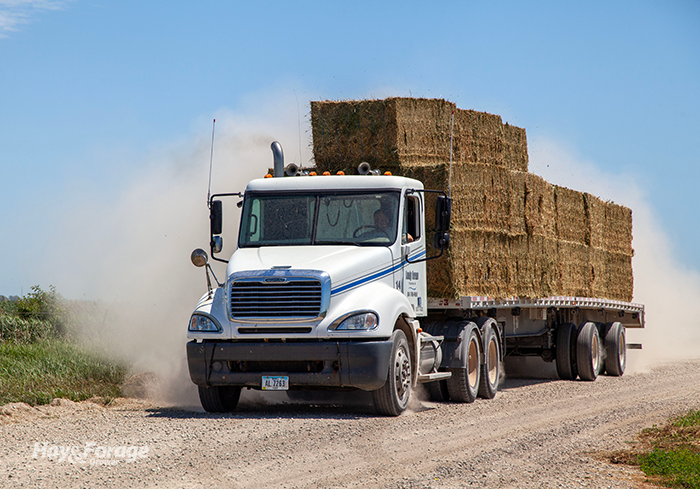
A Logan, Kansas, farmer was charged with wire fraud after scamming Montana and Wyoming cattle ranchers out of online hay sales. Jory Parks pleaded guilty to the arraignment and faces a maximum of 20 years in prison, a $250,000 fine, and three years of supervised release for devising a scheme to steal from customers.
In 2021, Parks advertised large amounts of hay available on Facebook under the business name Heart Cross Ranch LLC. He claimed he would haul forage across state lines to buyers in Montana and Wyoming who were experiencing significant hay shortages due to drought.
Parks boasted cheap prices to entice customers and required they sign contracts and mail down payments before hay would be transported. He then used the funds for unrelated business and personal expenses and failed to deliver the quality and quantity of hay in which buyers had agreed upon and paid for.
A press release from the U.S. Attorney’s Office, District of Montana, explains an Ingomar, Mont., couple signed a contract with Parks to buy 190 tons of hay for $43,300. They sent $21,650 to Heart Cross Ranch as a down payment, which Parks deposited into a business account at a Colorado bank.
“Three weeks later, Parks delivered the couple’s first shipment of 23 tons of the 190 tons they had purchased, but never delivered the additional hay or repaid the remainder of the down payment,” the press release states.
In another instance, Parks tried to convince a prospective buyer of his business’ success by claiming to have sold all of his high-quality hay to a horse racing facility in Nebraska the year prior. These statements have since been proven false by the FBI.
More fraud in Missouri
It’s not surprising for these kinds of scams to crop up in the hay market. Last year, the Missouri Attorney General’s Office released a statement warning farmers and ranchers about a string of similar cases of wire fraud. High hay prices spurred by greater demand and lower supplies during a dry growing season made desperate buyers more susceptible to getting swindled online.
The press release points out the fake ads on Facebook that duped at least a dozen Missouri farmers. After inquiring about the hay for sale, farmers were instructed to wire money into a bank account to secure their purchase before their hay would be delivered. Unfortunately, it never was.
To avoid falling victim to similar schemes, especially when on-farm hay stocks are low, consider the following tips for buying hay online and/or from a new source.
1. Know your seller. Stick to buying hay from trusted sources or making mutual connections instead of conducting business with a stranger. Otherwise, use university resources and extension directories that help match buyers to legitimate sellers.
2. Read the comments. Pay attention to feedback from other customers. Victims of wire fraud may air their complaints in the comments section of social media posts or leave poor reviews on farm websites after experiencing an unfair transaction.
3. Use a credit card. If possible, use a credit card to purchase hay online instead of sending sellers cash, checks, or using apps like Venmo. The Missouri Attorney General’s office notes credit card companies offer protections that buyers don’t have access to with those other alternatives.
4. Be skeptical. A sale that seems too good to be true probably is. Compare hay prices to current market prices and contemplate the terms and conditions before making a deal.

